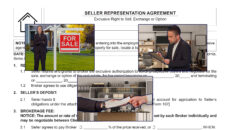Gietzen v. Covenant RE Management, Inc.
Facts: A commercial tenant leases space in a multi-unit property to operate a restaurant. A lease provision limits the landlord’s liability for a breach of the lease to the landlord’s interest in the property. The landlord leases another unit in the property to a tenant operating a business whose customers monopolize the shared parking lot, negatively impacting the first tenant’s restaurant business and constituting a breach of lease. The tenant successfully sues the landlord for money losses related to the breach. Before the tenant is able to collect, the property is foreclosed and the tenant’s lease is assigned to the landlord’s lender, wiping out the landlord’s interest in the property.
Claim: The landlord seeks to avoid paying money losses related to their breach of lease, claiming under the lease provision they are no longer liable for the breach since their interest in the property was extinguished by the foreclosure and the tenant could not pursue any other asset of the landlord.
Counterclaim: The tenant claims the landlord is liable for the money losses resulting from their breach since the landlord’s rights under the lease were terminated when the lease was assigned to their lender, thus preventing them from using the lease provision to assert unaccountability.
Holding: A California appeals court holds the landlord is liable for the breach of lease since the landlord’s protection from liability under the lease was also assigned to their lender when it foreclosed on the landlord. [Gietzen v. Covenant RE Management, Inc. (May 29, 2019)_CA6th_]














